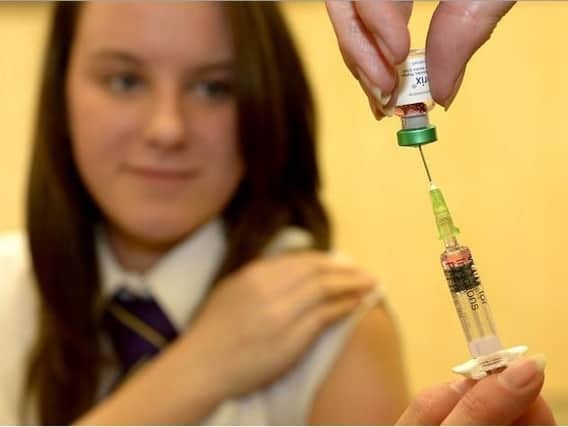Parents alerted following measles outbreak


Public Health England says it is working with local partners to make sure anyone in the area who needs a jab to protect against measles is aware.
Dr Kristina Poole, consultant in health protection at PHE North West, said: “Measles is a very infectious virus and can spread rapidly among communities if people have not been fully immunised.
Advertisement
Hide AdAdvertisement
Hide AdWhile most people who catch measles will recover completely within a couple of weeks, it’s important to remember measles can be a very serious illness that can leave permanent disability, and occasionally even kill.”
Dr Tom Tasker, GP and chair of NHS Salford Clinical Commissioning Group, said: “Anyone who has not had two doses of the Measles, Mumps and Rubella vaccination is at risk, and children are especially vulnerable."
But it’s important to remember that measles is not just a childhood illness and it’s never too late to have the vaccine. If you’ve not received two doses of the vaccine in the past or you’re unsure, speak to your GP practice. There’s no harm in receiving an additional dose where there is uncertainty.”
Dr Poole added: “MMR not only protects them, but also limits the chances of the virus spreading more widely, for example to children who are too young to have the vaccine and to adults who may be more vulnerable to the disease. MMR is a highly effective and safe vaccine.”
Advertisement
Hide AdAdvertisement
Hide AdMeasles is a highly infectious viral illness, so anyone with symptoms is also being advised to stay at home and phone their GP or NHS 111 for advice, rather than visit the surgery or A&E, to prevent its spreading. It is possible for anyone of any age to get measles and it can be more severe in teens and adults than in young children.